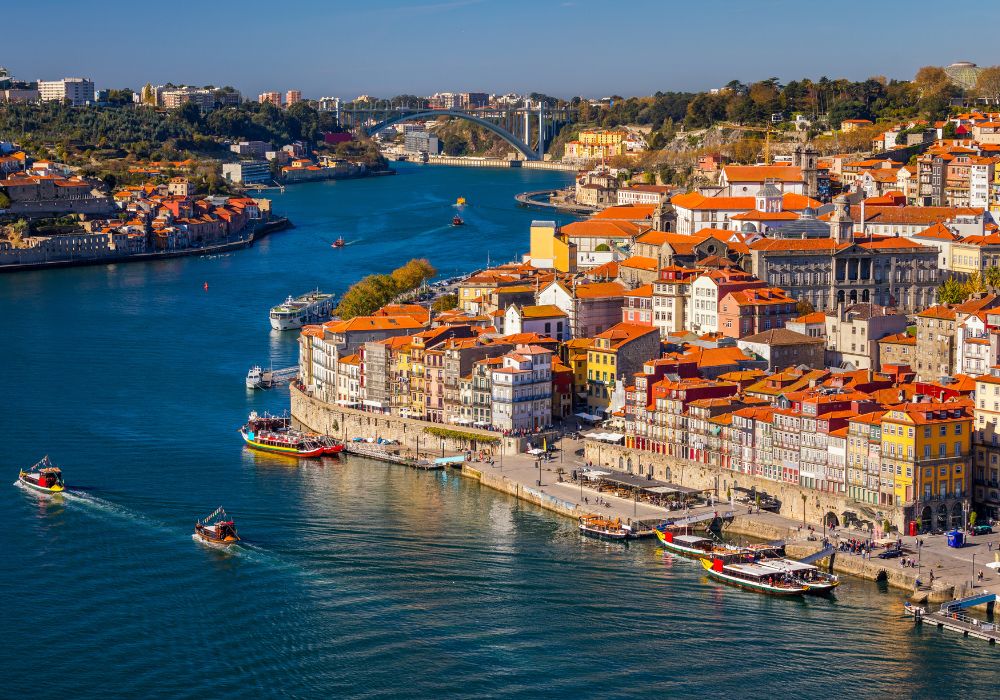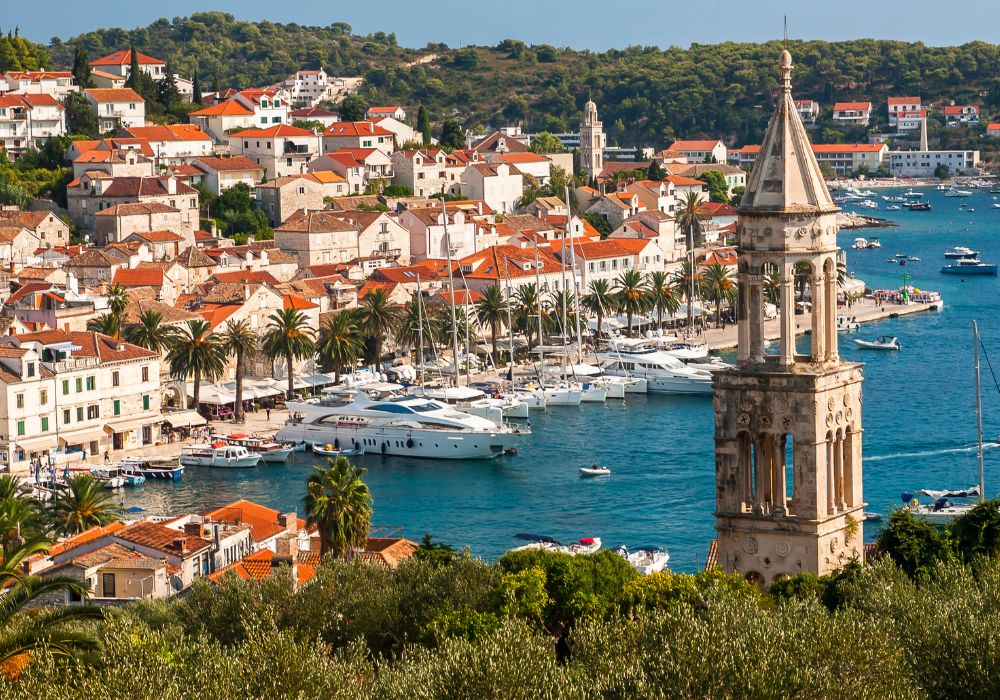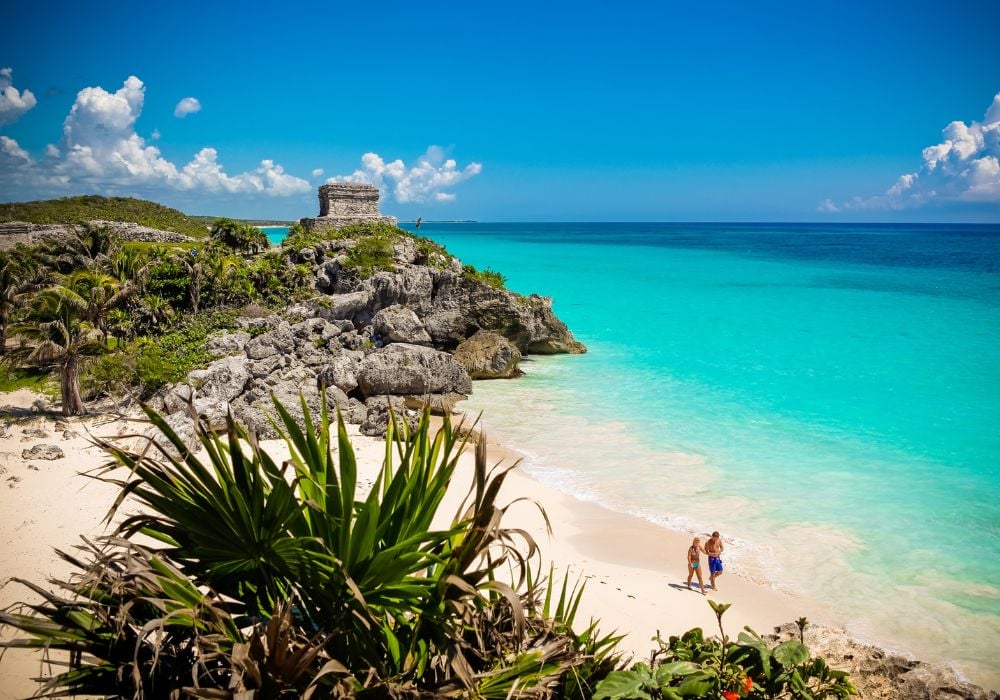These destinations offer financial incentives, visas, and perks for remote workers ready to relocate.

More countries than ever are rolling out the red carpet for remote workers, offering everything from cash grants to tax breaks to attract digital nomads.
Governments recognize the economic boost that remote professionals bring, and in exchange, they’re making it easier—and more rewarding—to relocate.
Whether it’s a scenic European town, a tropical island, or a vibrant cultural hub, these ten countries have launched programs that not only welcome remote workers but also provide financial incentives.
If you’ve ever considered working abroad, now’s the time to apply—many of these offers are time-sensitive, and spots are limited.
1. A digital nomad visa in Spain comes with major tax breaks.

Remote workers looking for an affordable European base now have a big incentive to move to Spain. The country recently introduced a digital nomad visa that allows non-EU residents to live and work there while benefiting from reduced tax rates. Instead of paying the standard income tax, qualifying individuals can opt for a special tax regime, commonly known as the “Beckham Law,” which offers a flat income tax rate of 24% on earnings up to €600,000 for up to six years.
This program also provides residency options, with the opportunity to bring family members along. Spain’s low cost of living outside major cities, combined with its sunny climate, rich culture, and thriving expat scene, makes this an attractive option. The application process is already open, but demand is high, so acting quickly is key.
2. Remote workers relocating to Portugal gain an affordable path to residency.

Portugal has long been a favorite among digital nomads, and now, the country is making it even easier to stay long-term. The D8 digital nomad visa offers remote workers a legal way to live in Portugal while enjoying a relatively low cost of living, great weather, and excellent infrastructure.
Successful applicants can stay for multiple years and eventually transition to permanent residency. Tax incentives are also available for new residents, making it an appealing financial move. With high-speed internet, coworking spaces, and a strong international community, Portugal is an ideal spot to work remotely.
3. Towns in Italy offer cash grants to professionals willing to move to rural villages.

For remote workers who dream of life in an Italian countryside town, this is the perfect opportunity. Italy is offering relocation grants of up to €30,000 for individuals willing to move to small villages with dwindling populations. The goal is to revitalize these historic communities while attracting professionals who can contribute to the local economy.
Expats must commit to living in one of these towns for at least a year and either work remotely or start a small business. The cost of living in these areas is far lower than in Italy’s major cities, and the financial support can help cover relocation expenses and housing costs. With scenic landscapes, rich history, and incredible food, this program is a rare chance to live la dolce vita on a budget.
4. A long-term tax reduction makes Greece a budget-friendly base.

Remote workers who relocate to Greece can take advantage of a generous tax incentive: a 50% income tax reduction for up to seven years. This means that anyone earning foreign income while living in Greece pays significantly less in taxes compared to standard rates.
The initiative is designed to attract professionals who can contribute to the local economy while working remotely. Whether settling in a bustling city like Athens or a tranquil island, participants can enjoy a relaxed Mediterranean lifestyle without breaking the bank. Applications are open, but spots are limited, making it essential to apply soon.
5. A tropical paradise, Mauritius provides tax-free benefits and cash grants.

This Indian Ocean island isn’t just a dream vacation spot—it’s also an emerging destination for remote workers. Mauritius offers financial incentives, including cash grants and tax-free earnings, for qualifying digital nomads. Applicants must have a stable remote income from outside the country to qualify for the visa.
With fast internet, modern infrastructure, and an affordable cost of living, the island provides an excellent work-life balance. Stunning beaches, lush landscapes, and a welcoming community make it an attractive long-term option. Given the growing demand, those interested should submit applications as soon as possible.
6. Digital nomads in Croatia enjoy a visa with zero income tax.

Since launching its digital nomad visa in 2021, Croatia has become a go-to destination for remote workers. One of the biggest advantages? Visa holders are completely exempt from local income tax for the duration of their stay. This makes Croatia one of the most financially appealing options for those looking to work remotely in Europe.
The visa allows stays of up to a year, with the option to reapply. Cities like Split, Dubrovnik, and Zagreb offer a mix of coastal charm, historic beauty, and modern workspaces. With a thriving digital nomad community and relatively low living costs compared to Western Europe, Croatia is an easy choice for remote professionals.
7. Ireland provides rural relocation grants of up to €84,000.

For those open to a quieter lifestyle, Ireland’s “Our Living Islands” initiative offers some of the most generous remote work incentives in Europe. This program provides up to €84,000 in funding to remote workers willing to relocate to one of Ireland’s offshore islands. The goal is to repopulate these areas and bring new economic activity to the region.
While island life can feel more secluded than city living, the stunning landscapes, close-knit communities, and rich Irish culture offer a unique lifestyle. The program has limited availability, so early applications are crucial.
8. Skilled professionals can apply for Taiwan’s long-term Gold Card program.

Unlike many digital nomad visas that require annual renewals, Taiwan’s Gold Card program provides residency for up to three years. The initiative is designed to attract skilled professionals and offers benefits such as tax incentives and access to Taiwan’s high-quality healthcare system.
The cost of living remains significantly lower than in many Western countries, making it easy to maintain a comfortable lifestyle. Excellent public infrastructure, a dynamic food scene, and a strong expat community add to Taiwan’s appeal. Only a limited number of Gold Cards are issued annually, so applying early increases the chance of acceptance.
9. Mexico welcomes remote workers with a temporary residency visa.

Mexico has long been a favorite among remote workers, and its temporary residency visa makes it even easier to live there. The program grants permission for remote professionals to stay in the country while earning income from abroad, with an initial approval period that can be extended.
Unlike traditional digital nomad visas, this one does not require applicants to work for a specific employer. The cost of living remains one of the lowest in the Americas, making it possible to enjoy beachfront cities, colonial towns, or cultural hubs like Mexico City without overspending. Rising interest in this visa means applying early is advised.
10. Life is made easier for remote workers with tax exemptions in Uruguay.

A stable economy, low taxes, and a welcoming culture make Uruguay a great destination for remote workers. The country allows foreign professionals to live and work there tax-free for up to ten years, provided their income comes from outside Uruguay.
Beyond the financial benefits, Uruguay offers a high quality of life, safe cities, and beautiful coastal regions. The residency process is straightforward, but as more people discover Uruguay’s advantages, competition for spots is increasing. Acting quickly will ensure the best chance at securing residency.
